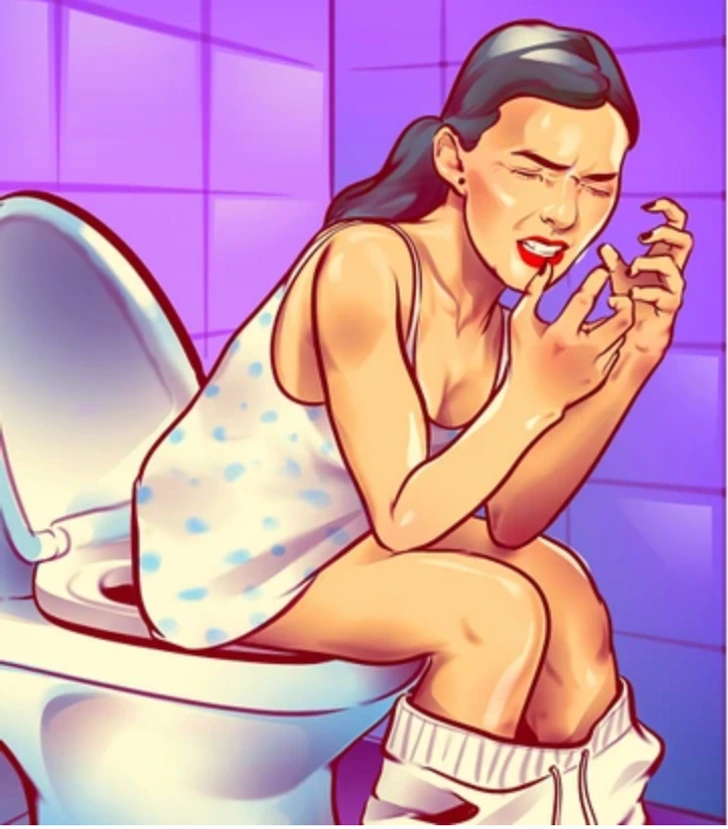We hear it all the time—get at least seven hours of sleep every night. But let’s be honest, with stress, work deadlines, and late-night entertainment, many of us struggle to meet that target. While skipping sleep might seem harmless in the short term, research is showing that chronic sleep deprivation can have serious consequences on our bodies.
A recent study conducted by Simba, a sleep technology company, used artificial intelligence to analyze the effects of insufficient sleep, and the findings are eye-opening. Experts warn that cutting back on sleep does more than make you groggy—it affects nearly every aspect of your health. Here are six alarming effects of not getting enough rest.
1. Hormonal Fluctuations: A Recipe for Skin Problems

Ever noticed that your skin looks dull and tired after a bad night’s sleep? That’s not a coincidence. According to Lisa Artis, Deputy CEO of The Sleep Charity, lack of sleep triggers an increase in cortisol—the infamous stress hormone.
When cortisol levels spike, inflammation rises, making skin conditions like eczema and psoriasis worse. This can cause redness, itching, and irritation. Plus, poor sleep disrupts the production of collagen, a key protein that keeps your skin firm and youthful. Over time, this can lead to premature wrinkles and fine lines.
2. Skin Problems: Losing That Healthy Glow
If you regularly sleep less than seven hours, your skin might be paying the price. Simba’s study revealed that 24% of sleep-deprived participants experienced increased skin sensitivity. Some common issues included:
- Eczema (16%) – Dry, itchy patches that worsen with stress.
- Psoriasis (7%) – Flaky, scaly skin linked to immune dysfunction.
- Dull complexion (10%) – Lack of blood circulation results in pale, lifeless skin.
Your body goes into repair mode while you sleep, increasing blood flow and collagen production to rejuvenate your skin. But when you don’t get enough rest, your skin doesn’t have the chance to recover, leading to an overall tired appearance.
3. Brittle Nails: A Sign of Internal Imbalance
Think your nails have nothing to do with your sleep? Think again. The study found that 15% of sleep-deprived individuals suffered from brittle, weak nails.
When you’re not resting enough, your body struggles to repair itself, and this includes your nails. Poor sleep can reduce the absorption of essential nutrients like biotin, iron, and zinc—minerals that contribute to strong, healthy nails. Over time, this can lead to cracking, splitting, and slow nail growth.
4. Weight Gain: Sleep Deprivation Triggers Hunger Hormones
If you’ve ever reached for junk food after a night of bad sleep, science says you’re not alone. Research confirms that sleep deprivation wreaks havoc on two key hunger hormones:
- Ghrelin (the hunger hormone) skyrockets – making you crave more food.
- Leptin (the fullness hormone) drops – meaning you don’t feel satisfied as easily.
As a result, you’re more likely to overeat—especially sugary and high-carb foods. Simba’s study found that 26% of sleep-deprived individuals were overweight, while 32% reported bloating. Women often store excess fat in their hips and thighs, while men tend to accumulate belly fat due to lower testosterone levels.
The bottom line? If you’re trying to maintain a healthy weight, prioritizing sleep is just as important as diet and exercise.
5. Body Temperature Imbalance: Why You Might Feel Colder at Night

Ever had freezing hands and feet while struggling to sleep? That’s because sleep and body temperature are closely linked.
During deep sleep, your body works to regulate its temperature. However, lack of rest interferes with this process, leading to temperature fluctuations. According to Lisa Artis, sleep deprivation can make it harder for your body to maintain warmth, causing discomfort in your extremities—especially your hands and feet.
This could explain why people who sleep poorly often experience chills or night sweats.
6. Constipation: The Surprising Gut-Sleep Connection
Most people don’t associate sleep with digestion, but research suggests they’re deeply connected. A study on sleep disturbances found that poor sleep increases the risk of constipation.

When you don’t get enough rest, your digestive system slows down, causing irregular bowel movements. Stress and hormonal imbalances caused by sleep deprivation can also disrupt gut function, leading to bloating, discomfort, and constipation.
Good sleep supports a healthy digestive system by allowing your body to process food efficiently. Without it, your gut struggles to function properly, leading to digestive issues over time.
Final Thoughts: Why Sleep Should Be a Priority
If you’ve been sacrificing sleep in favor of productivity or entertainment, it might be time to rethink your routine. Science is clear—getting fewer than seven hours of sleep can lead to skin problems, brittle nails, weight gain, temperature imbalances, and even digestive issues.
While everyone’s sleep needs vary, prioritizing rest is crucial for long-term health. If you struggle to get enough sleep, try establishing a bedtime routine, limiting screen time before bed, and creating a relaxing sleep environment.
Your body does its best work when you give it time to recover. So tonight, turn off the distractions, get cozy, and let your body recharge—you’ll thank yourself in the morning.


